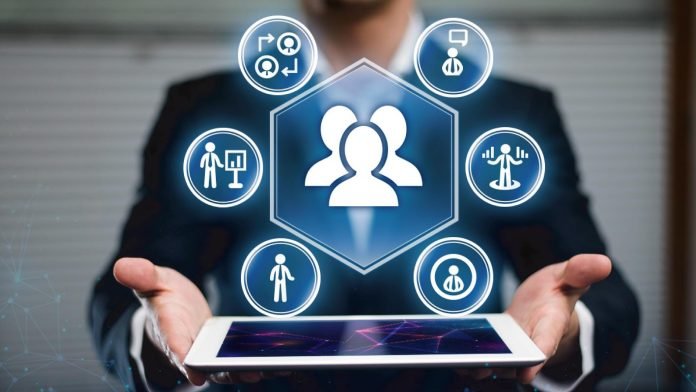Focus on the Frontline: HR Tech’s Role in Connecting Deskless Team Members
While the workplace continues to change, one thing remains constant – the critical role of frontline team members. Frontline or deskless workers comprise a significant portion of the global workforce and are especially crucial in industries like retail, healthcare, and manufacturing. According to a Microsoft Work Trend Index Special Report, nearly two billion people worldwide are part of the frontline workforce, and 88% of organizations employ frontline workers.
The Struggle is Real for Frontline Team Members
Many of these frontline workers face different obstacles from those experienced by their office-based colleagues. The pandemic provided an up-close look at many of the serious, often dangerous, challenges frontline workers face. Even now, many of these employees need help with communication and engagement, often feeling disconnected from the broader organization for which they work.
A recent McKinsey survey of frontline retail employees revealed that 44% were considering leaving their jobs in the next three to six months. This is 1.2 times more than the average U.S. employee. A study from MIT found that 75% of frontline workers feel left out of the loop.
These studies point to the real and/or perceived isolation and separation of these team members from their office-based colleagues and the company’s mission. The disconnect may often extend beyond emotional strain, as having under-informed and under-engaged team members leads to higher turnover rates and lower productivity.
A Solution to the Communications Divide
In response to these pressing challenges, companies increasingly turn to HR technology to create more seamless, inclusive experiences for frontline workers. A Gartner study found that 54% of organizations already invest in technology to address the frontline worker experience. Others plan to do so in the near future.
One of the most effective ways to address the communication gap is by leveraging mobile technology. Everyone lives on their phones, but frontline employees rely on their mobile phones more than most, using it as a channel for work-related information. Because of this reality, a well-designed employee app is a powerful engagement tool.
These apps allow companies to connect with their teams wherever they are—whether in the field, on the shop floor, or the road. By providing access to company news, updates, scheduling, and training materials, mobile apps ensure that frontline workers are informed and connected, helping to reduce turnover and increase engagement.
Modern intranets and portals also extend the reach of essential company communications. Organizations can publish content directly to frontline workers, enabling them to access important updates and resources wherever they are working. In other words, no desk, no problem, as these modern intranet solutions deliver company information smoothly and consistently across departments, teams, and locations.
The Power of Praise and Recognition
While communication is vital, it’s equally essential for HR tech to address the deeper issue of recognition and employee support. The “out of sight, out of mind” phenomenon is genuine for frontline workers, who often feel undervalued and unseen by their leadership.
Trade Press Services found that 85% of frontline workers are most motivated when they receive regular updates from management. With this backdrop, leadership can do far more than just relay information. They can use HR technology as an essential channel to recognize and reward employees in meaningful ways.
By integrating employee recognition programs into the same platforms used for communication, organizations can provide timely praise, rewards, and visible and impactful incentives. Whether a shout-out for exemplary performance in an all-hands message or a points-based reward system, recognition tools go a long way toward improving morale and strengthening frontline worker engagement.
More Insights Leads to Less Attrition
AI also brings another technology boost into the frontline engagement mix, providing additional ways to manage and support deskless workers. Now, organizations have a clearer view of frontline engagement, productivity, and turnover. With these actionable insights, organizations can tailor their support to the needs of specific teams. For example, predictive analytics can identify patterns indicating which employees are at risk of burnout or attrition, allowing HR departments and other leaders to intervene early with support and resources.
The Future of HR Tech for the Frontline
As more organizations recognize the strategic importance of their frontline workforce, HR technology will play a critical role in connecting, engaging, and retaining these employees. The trend is clear: investment in tools that facilitate communication, recognition, and data-driven decision-making is no longer optional—it’s essential.
The future of HR tech lies in creating holistic solutions that empower frontline workers to do their jobs more effectively while feeling more connected to their organization’s mission and values. From employee apps to AI-driven insights, the right technology can ensure that frontline workers are informed and feel valued.
For organizations that take the time to understand and address the specific needs of their frontline workforce, the payoff is significant: lower turnover, higher productivity, and a more engaged, motivated team ready to drive success from the ground up. As the frontline continues to evolve, so must the technology supporting it.
Explore HRtech News for the latest Tech Trends in Human Resources Technology
ABOUT THE AUTHOR

Holly Grogan
Chief Experience Officer, Appspace
Holly Grogan is the Chief Experience Officer at Appspace. In this role, Holly leads the charge of crafting exceptional experiences for internal team members and valued customers. Her role revolves around creating a cohesive and engaging environment that fosters growth, satisfaction, and innovation.
She focuses on enhancing the team member journey from onboarding to career development, with a mission to build a workplace culture that prioritizes well-being, collaboration, and personal growth. For Appspace customers, she is dedicated to delivering exceptional experiences at every touchpoint. By understanding customer needs and expectations, she works to continuously improve Appspace services and solutions, driving customer satisfaction and loyalty.
Holly is on the Board of Directors of Think Big for Kids, a non-profit helping break the cycle of poverty by providing middle and high school students with career opportunities, mentorship, and job readiness.












